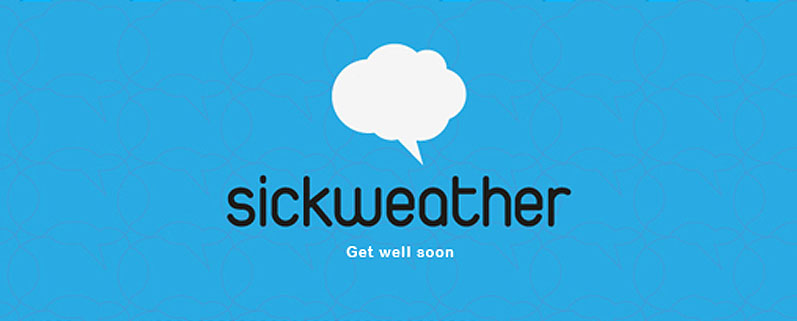Just as Doppler radar scans the skies for indicators of bad weather, local health forecasting startup Sickweather scans social networks for indicators of illness, allowing you to check for the chance of sickness as easily as you check for the chance of rain.

The site is the brainchild of longtime friends and cofounders Graham Dodge, James Sajor, and Michael Belt. There’s an interesting story about how the 3 of these guys went to high school together in Timonium, travelled down different life paths, and then met back up to start Sickweather. I’ll let them tell you that for a rainy day.
The idea was conceived by Graham Dodge after his experience working in online marketing and seeing his friends and family on Facebook and Twitter always identifying when they were sick. He was also a member of the team that created the first interactive crime map for Crime.com (sold to USA Networks), which might explain why he chose to visualize health trends on a map.
Graham brought the idea to James Sajor who himself had been doing his own meta version of the functions of Sickweather. James’ mother had recently battled cancer and her immune system had been compromised during treatment, which meant that James had to avoid getting sick at all costs. He used to call ahead to make sure no friends were ill before going out. He even made restaurant reservations during off-hours to avoid crowds.
Michael Belt is a PHP and Javascript guru that has been getting the website ready for launch – it’s still in private beta and is expected to be in a public beta in early November.
So here’s how the website works:
With more and more people turning to outlets like Facebook and Twitter to update their friends and followers as to when they get sick, there is now an immense amount of real time data available on the health of our population. Sickweather’s robust algorithm filters and qualifies this data from several public sources (including its own online community) and cross references them with location tags to produce real time “weather maps” of reported symptoms. This information is then used to forecast the movement of everything from stomach bugs to chronic illness and other sickness, including depression.
Sickweather is building a strong advisory board too. Their first add was Michael Paul, a PhD student at Hopkins who studies language and speech processing and interned at Twitter this summer. There’s a few more rockstar advisors waiting in the wings.
As for funding, the company has been privately funded by the investments and sweat equity of its founders but they are planning a sizable raise very soon.
Before you go...
Please consider supporting Technical.ly to keep our independent journalism strong. Unlike most business-focused media outlets, we don’t have a paywall. Instead, we count on your personal and organizational support.
3 ways to support our work:- Contribute to the Journalism Fund. Charitable giving ensures our information remains free and accessible for residents to discover workforce programs and entrepreneurship pathways. This includes philanthropic grants and individual tax-deductible donations from readers like you.
- Use our Preferred Partners. Our directory of vetted providers offers high-quality recommendations for services our readers need, and each referral supports our journalism.
- Use our services. If you need entrepreneurs and tech leaders to buy your services, are seeking technologists to hire or want more professionals to know about your ecosystem, Technical.ly has the biggest and most engaged audience in the mid-Atlantic. We help companies tell their stories and answer big questions to meet and serve our community.
Join our growing Slack community
Join 5,000 tech professionals and entrepreneurs in our community Slack today!

The person charged in the UnitedHealthcare CEO shooting had a ton of tech connections

From rejection to innovation: How I built a tool to beat AI hiring algorithms at their own game

Where are the country’s most vibrant tech and startup communities?


